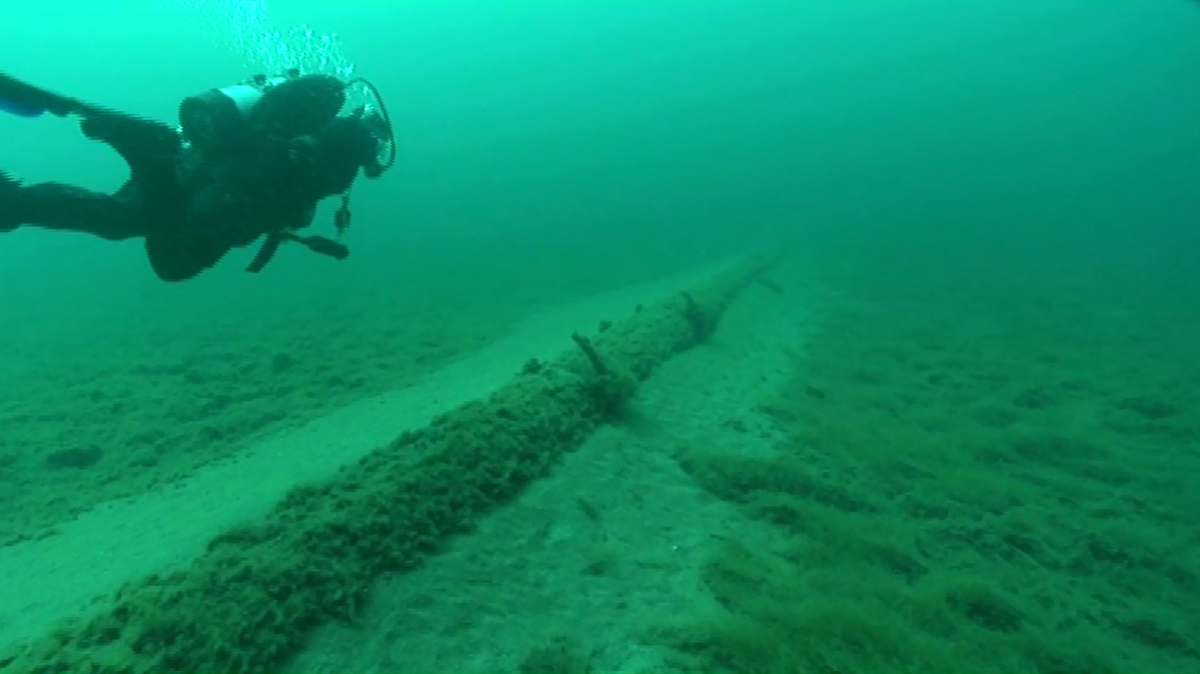“Delay only further jeopardizes our environment and economy,” he said. “It’s time to stop playing Russian roulette with the Great Lakes.”
The task force recommended:
■ Enbridge be prevented from ever shipping heavy crude oil through its Line 5 pipelines underwater in the Straits of Mackinac.
■ Requiring Enbridge to disclose safety inspection information on the Straits pipelines.
■ Calls for independent analysis of the Straits pipelines, and an independent look at alternatives to them.
■ Statewide, the report calls for increased coordination between pipeline operators, local governments and first responder crews on spill response plans and emergency training.
Wyant said the task force’s recommendations “hold pipeline operators more accountable and provide additional protection for our environment.”
“The Great Lakes are Michigan’s most precious resource and our top stewardship charge,” he said. “While we recognize the importance of transporting energy to power Michigan communities, it cannot be at the expense of our environment.”
Line 5 was built in 1953; a 645-mile, 30-inch-diameter pipeline running from Superior, Wis., eastward across the Upper Peninsula. The line splits into two, 20-inch-diameter, parallel pipelines underwater through the 4.6 miles across the bottom of the Straits of Mackinac. The pipeline then continues south through the Lower Peninsula, where it crosses the St. Clair River into Sarnia, Ontario.
A University of Michigan study commissioned last year by the National Wildlife Federation found the Straits would be the “worst possible place” for a Great Lakes oil spill, contaminating waters and shoreline in both Lakes Michigan and Huron through the waterway’s often shifting currents.
“No amount of preparation would be adequate to prevent utter disaster if Line 5 fails,” said Chris Kolb, president of the Michigan Environmental Council.
Enbridge uses the Line 5 pipeline to carry light crude oil and natural gas liquids. In a Feb. 10 letter to Schuette and Wyant, company officials stated: “There have never been any prior, current or future plans to move heavy crudes through Line 5.”
Heavy crude oil is considered particularly problematic because it makes traditional petroleum spill cleanup methods less effective, as the oil sinks to the bottom in clumps and adheres with sediments and other materials. The 850,000-gallon oil spill on Enbridge’s Line 6B pipeline near Marshall in July 2010 was diluted bitumen, or dilbit, a heavy oil product that prompted a more than 4-year, $1 billion cleanup.
In a statement, Enbridge officials called the pipeline report “important work for the state of Michigan.”
“It is important that the people who live, work and recreate near pipelines know that the pipeline is operated safely, particularly in high consequence areas such as the Straits of Mackinac,” Enbridge’s statement reads.
“Enbridge will review the entire report and will work with the Michigan state government to further understand the recommendations and the additional analysis that is being proposed.”
In addition to the state attorney general’s office and DEQ, the pipeline task force included the Michigan Public Service Commission, Department of Natural Resources, Michigan Office of the Great Lakes, Michigan Department of Transportation and Michigan State Police, Emergency Management and Homeland Security Division.
Additional recommendations include considering legislation to require a state review of oil spill response plans, improved spill reporting and stiffer civil fines. The task force also recommended the legislature consider new laws or rule-making to improve pipeline siting in Michigan.
The task force’s report was largely silent on the issue of Michigan’s aging, crumbling natural gas pipeline infrastructure, and the slow pace at fixing it. A 2013 Free Press investigation found that Michigan had more than 3,100 miles of old wrought- and cast-iron natural-gas pipelines — the type federal regulators consider the most at risk of corrosion, cracking and catastrophic rupturing — and that the state’s two largest utilities had replaced less than 15% of these pipelines — only 542 miles — in the past decade. Only four other U.S. states had more old, iron gas mains than Michigan, and DTE Energy had more wrought- and cast-iron gas pipelines in its system than all but one other utility in the country.
DTE Gas leak surveys showed average hazardous leak counts quadrupled to 1,248 from 2006 to 2010. More than a quarter of the leaks in that average were caused by corrosion, according to data provided by the utility to the federal Pipeline and Hazardous Material Safety Administration, or PHMSA, the regulator of pipelines nationwide.
Consumers Energy, the state’s largest natural gas provider with 1.6 million customers, saw its corrosion-related hazardous leaks increase 69% in its main distribution lines from 2010 to 2013; with hazardous corrosion-related leaks jumping 22% to its service lines that go directly to homes and businesses over that time period.
Both utilities have programs in place to switch out aging pipelines, but the wait may be up to 25 years or more to get to some of them.
Source: Detroit Free Press









